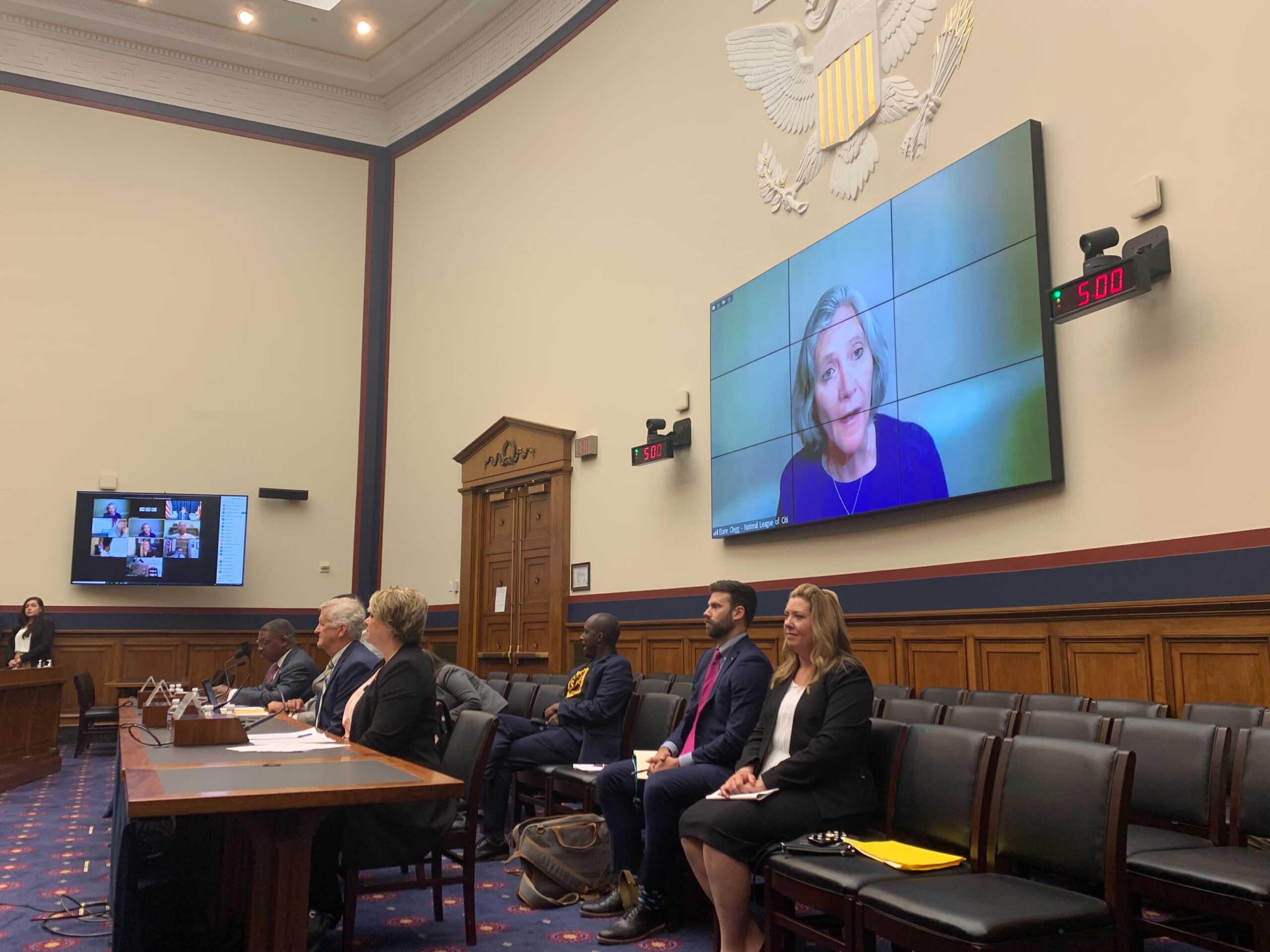WASHINGTON, D.C. — Today, City Council President Elaine Clegg of Boise, Idaho, testified on behalf of the National League of Cities (NLC) before the House Committee on Transportation and Infrastructure in a hearing on the staggering increase in road deaths. Last year, 42,915 Americans died in motor vehicle traffic crashes. This annual death toll represents the entire population of cities like Burlington, VT, Jefferson City, MO, Woodbridge, VA, or Tigard, OR.
To watch a recording of Council President Clegg’s testimony, click here. Below is an excerpt from Council President Clegg’s written testimony:
“We also know that pedestrians and older Americans are especially vulnerable and make up an outsized proportion of the yearly deaths with fatalities increasing at a rate of 13% to 17% of all deaths for pedestrians. The Governors Highway Safety Association believes this is the largest 3 number of pedestrian deaths in four decades. Fatalities among older Americans have increased 17% to nearly 20% of all deaths. Idaho had the most traffic deaths in 16 years in 2021, and one of the highest rates of increase in the nation at 36% a – that is three times the average rate of increase in other states. The reality in America right now is that no matter the size of your community or whether it is urban, suburban or rural, this persistent issue hits hard at home and in your Districts. So many communities are concerned – from Idaho’s communities to Doraville, GA, to Ferndale, MI, to Greenville, NC, to Culver City, CA – and taking action to set up plans and projects despite tough recovery budget cycles and difficult decisions.
As the U.S. Department of Transportation (USDOT) said so well, behind each of these numbers is a life tragically lost, and a family left behind. In Idaho, we take part in a memorial to line up shoes representing the pedestrians and bicyclists who have died in crashes in the last five years on the state capitol steps. At our ceremony each year, we hear from family members who have lost a loved one in one of these terrible crashes and learn about the personal human toll this takes on our families. There is the sad reality behind the numbers – like the mother who has raised her two daughters without their father after he was killed biking to work. These are stark reminders to double-down on what works and act to save lives today.
Zero is the only acceptable number of deaths on America’s roads. Yet, many of the fundamental measures and guides of transportation are reasons that cities and towns cannot easily change our roads to be safer for everyone and reach this goal on our own. Collectively, federal, state and local governments must be willing to adjust our rules of the road for design and speed in order to save lives. Cities and towns have found that federal measures and designs rely too heavily on car throughput measures set during the era of freeway building to 4 keep single-purpose, high-speed, limited access roadways safe and moving. But no city or town is only a highway – Main Street America in cities small and large have a multitude of access points and users with a need to create safe and efficient access from their homes to their destinations. […]
As we begin a great time of rebuilding America’s infrastructure, we need to work together to quickly adopt better measures and designs that can take into account more factors like speed, distance, impact on non-drivers, and time of travel. We believe that if we reset our goals and allow safety to be the primary measure, transportation engineers can modernize the foundational cost-benefit transportation measures and truly assess the costs America is now paying in lives. Growing communities like mine in Boise, Idaho, and smaller and rural communities I work with across the state and the country are ready to make the changes necessary to bring our road deaths down to zero, but we also realize we cannot do this alone. It will take action at the federal, state and local levels to reach this goal by removing barriers, changing the way we measure success, and inviting innovation where we have stagnated.”
Council President Clegg serves as the Chair of NLC’s Transportation and Infrastructure Services Committee.
###
The National League of Cities (NLC) is the voice of America’s cities, towns and villages, representing more than 200 million people across the country. NLC works to strengthen local leadership, influence federal policy and drive innovative solutions. Stay connected with NLC on Facebook, Twitter, LinkedIn and Instagram.
